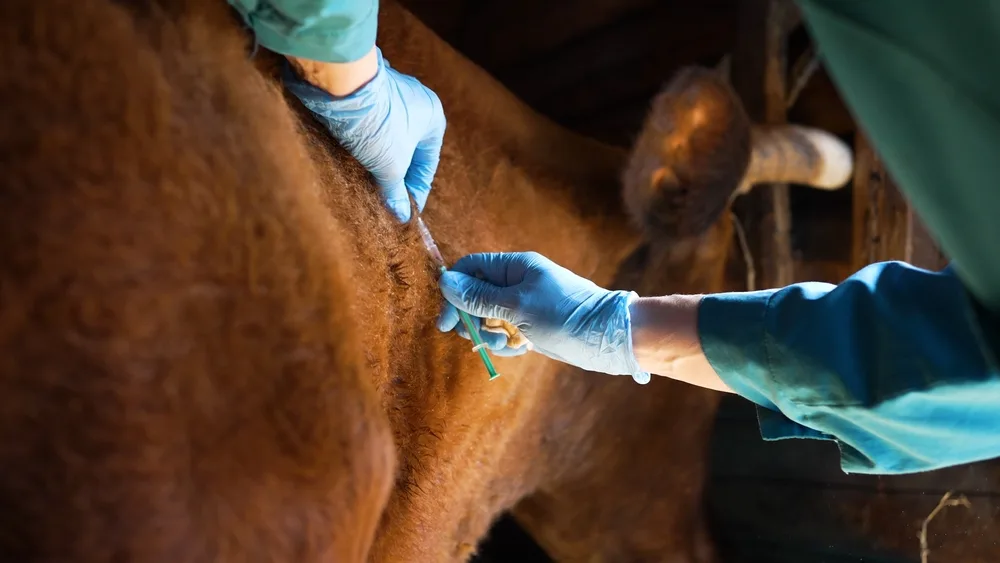Study this Diagnosing Animal Diseases course with a foundation in the systematic investigation and diagnosis of health disorders in animals. This course is suitable for:
- Farmers
- Wildlife Carers
- Veterinary Nurses
- Animal carers
Routine disease investigations are based on clinical, pathological and epidemiological evidence. If there is a need for conclusive identification of a disease or condition, an accurate laboratory diagnosis should be obtained. It is particularly important, especially in the case of infectious diseases that the final diagnosis rests on adequate aetiological evidence. In most cases, disease investigations are carried out by qualified government stock inspectors and/or veterinarians. It helps for animal owners to understand and be able to recognise disease conditions that may affect their animals, so that timely intervention can occur.
Course Aims:
- Discuss conducting examinations
- Determine information to collect for analysis of an animal’s condition.
- Describe how to collect samples
- Identify information required for diagnostic testing
- Describe different diagnostic tests that may be performed
- Explain common characteristics of animal viral diseases
- Discuss significance a range of viral diseases that affect animals
- Determine characteristics of bacterial and fungal animal diseases
- Differentiate the characteristics of a range of common bacterial and fungal diseases
- Discuss and differentiate a range of parasitological conditions that affect animals
- Discuss and differentiate a range of metabolic and nutritional diseases that affect animals
- Discuss and differentiate some common disorders that result from poisoning or toxins
- Discuss and differentiate a range of genetic disorders that affect animals
- Identify and discuss miscellaneous non-pathological factors that affect animal health, including allergies, dehydration and age
- Undertake a holistic evaluation of indicators of illness in sick animals
Detailed Course Outline
This Diagnosing Animal Diseases online course is made up of a number of lessons or units. Each of these has self assessment questions, a set task (practical homework) and an assignment which you can upload online.
There are 10 lessons in this course:
1. How Animal Diseases are Diagnosed
-
- Conducting clinical examinations
- Gross and clinical pathology
- Information to collect and how to collect it (live animal and necropsy samples)
- Specialist support services to assist in diagnosis (i.e. types of laboratories, specialist vets, etc.)
2. Diagnostic Testing
-
- Pathways followed to detect and diagnose different types of diseases
- Information to be supplied with samples
- Diagnostic testing and diagnostic techniques
3. Viral Diseases
-
- Characteristics of viruses
- The significance of a range of viral diseases that affect animals
- Viral taxonomy
- Types and structure of viruses
- Virus replication cycle, transmission
- Common viral conditions
4. Bacteria and Fungal Diseases
-
- Characteristics of bacterial and fungal organisms
- Laboratory identification
- Controlling infections
- Specimen collection
- Important disease conditions
5. Parasitological Conditions
-
- Terminology and classification
- Life cycles
- Protozoa
- Helminthes
- Arthropods
6. Metabolic and Nutritional Conditions
-
- Common metabolic conditions
Cattle, horses, pigs, sheep/goats, cats and dogs
- Common metabolic conditions
7. Poisoning
-
- Common disorders that result from poisoning or toxins
- Cardio-respiratory
- Central Nervous System (CNS)
- Dermatological
- Gastrointestinal
- Hepatological
- Hematological disorders
8. Inherited Conditions (Genetic Disorders)
-
- Types of genetic inheritance
- Examples of genetic diseases affecting horses, dogs, and cats
9. Other Conditions and Disorders
-
- Identify miscellaneous conditions such as allergies
- Dehydration
- Age-related conditions
10. Research Project
When you have completed the lessons of your Certificate course, you will be given the option of taking the optional exam. It’s okay if you don’t want the exam, we still issue your Careerline Certificate. For Advanced Certificates however, the exam is compulsory (per module) and are included in the course fee.

